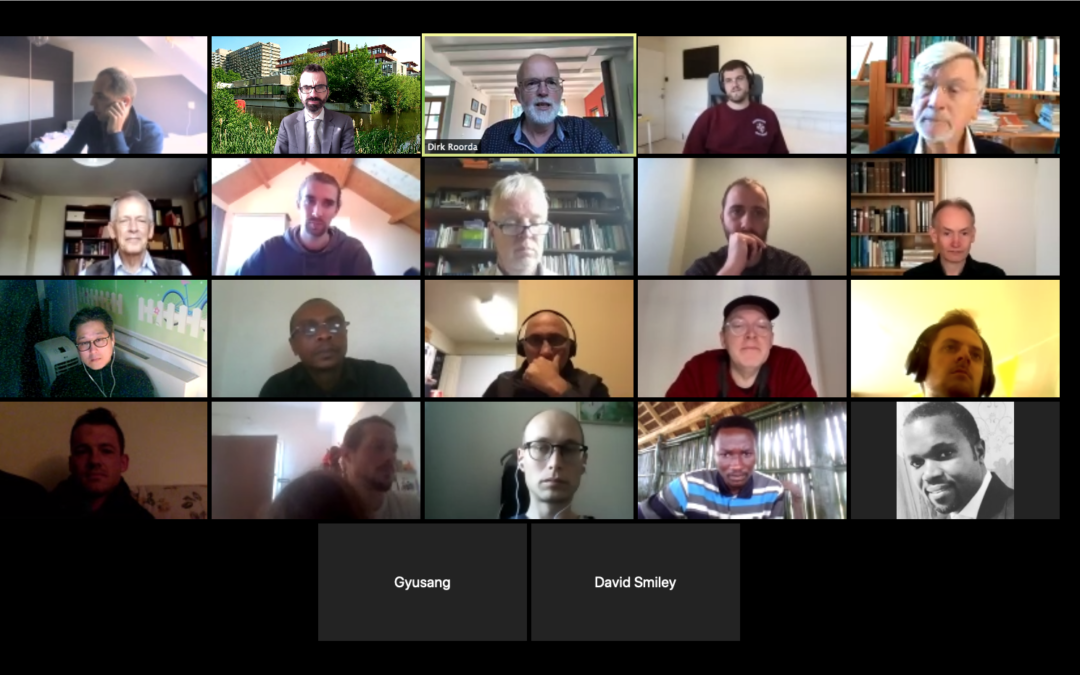Tuesday morning (Amsterdam time), September 1st, was the start of the course Digital Hermeneutics and the Reception of the Hebrew Bible at the Vrije Universiteit in Amsterdam. Because of the coronavirus, all lectures took place online via Zoom meetings. Although it made physical face-to-face contact impossible, the coronavirus created a unique setting for the course. Because all lectures where held digitally, students from all over the world joined in to immerse themselves in the world of Digital Hermeneutics and Biblical Studies.
Students from Nigeria, Korea, the United States, Armenia, Serbia, and the Netherlands participated in this course. Some students were attending lectures as early as 5:00 AM! There was also a unique mix of PhD students and Master students. The majority of international students were studying their PhD under our lecturer’s (Wido van Peursen) supervision, while the MA students were Dutch students from various universities. While most students were theologians and conducted research in the field of Biblical Studies, one student who followed this course was an Artificial Intelligence student looking to broaden his horizon. Sometimes, however, the topics discussed were so technical that at times we all started to feel like computer scientists instead of theologians. We discussed scholarly papers on a wide variety of topics regarding digital, computational approaches to the Bible. Some topics, such as the relation between syntax and semantics, participants roles, and Digital Humanities, belonged more to the field of linguistics. At other times, these research topics were combined with advanced computational methods, such as statistics, social network theory, Markov chains, machine learning. We even briefly acquainted ourselves with some tools, such as Paratext (used in the field of Bible Translation), Shebanq and TextFabric (both used to perform computational analysis on ancient text corpora). All in all, the course was an enriching experience not only because of the wide variety and high technicality of the discussed topics but also because of the different backgrounds of the students which made for interesting conversations (and background noises, when one student from Nigeria held a presentation whilst being surrounded by chickens).


